Current Lab Members
Dr Luke Jones (Lecturer: Lab Director)

The time lab is currently run by Dr Luke Jones, lecturer in psychology. Luke came to Manchester to read for a PhD under Prof John Wearden in 2000, and has been the lab director since 2005. You can find a list of Luke's publications here
DR Emily Williams (previous masters and Phd student)
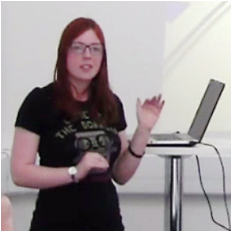
Emily has studied at the University of Manchester since 2011 when she started her BSc and has worked with Dr Luke Jones since her final year project in 2013-14. This project investigated visuo-spatial imagery for time in non-synaesthetes, which found linear organisations of weeks and circular organisations of years to be common in the general population. Following her first class degree, Emily completed a Masters of Research, investigating the relationship between internal clock speed and information processing speed, and its modulation by repetitive stimulation such as click trains; and gained a distinction as well as her first publication. Emily started her PhD in 2015, supervised by Dr Luke Jones and Dr Andrew Stewart, investigating the pacemaker component of the internal clock, funded by the ESRC and the University's President's Doctoral Scholarship Award. In 2019 Emily submitted her thesis, passed her Viva and graduated with her PhD. Emily continues to work on time perception with the other members of the lab, but is now a postdoctoral researcher at Leeds University. You can read about her current work here.
Dr martin casassus (previous PhD Student)
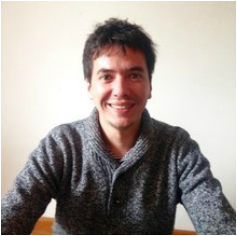
Martin is a psychologist with interests in cognitive psychology, neuropsychology, and research methods. His current questions are about time perception, the neurophysiology underlying the process and how time perception may affect social skills such as social coordination, researching with clinical populations such as Autism Spectrum Conditions and Traumatic Brain Injury. After finishing his undergraduate degree and professional qualification in Psychology at Universidad Central de Chile, Martin worked in several research projects as a research assistant and as clinical psychologist at an Autism Rehabilitation Centre. In 2014 Martin moved to Manchester to pursue a science career and after work in supporting services, and as a research assistant at Head Forward Centre and at the University of Manchester, in 2016 he was granted the prestigious President’s Doctoral Scholar Award to pursue PhD in Psychology at University of Manchester on a project examining prospective timing in Autism Spectrum Conditions, supervised by Dr Luke Jones, Dr Ellen Poliakoff and Dr Emma Gowen. UPDATE: June 2020 - Martin has now passed his viva and has obtained his PhD.
Ms joanna Witowska (Previous Phd student/visiting Intern)
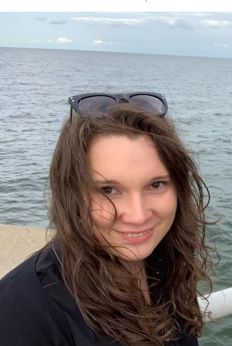
Joanna is a PhD student at the Faculty of Psychology at the University of Warsaw, where she is a researcher in the Intelligence Cognition Emotion Lab. She also gained her professional experiences abroad at the University of Cologne, University of Freiburg, in the Institute for Frontier Areas of Psychology and Mental Health in Freiburg, and Oxford Brookes University. Her PhD thesis examined psychological time and cognitive functioning. Besides time Joanna is also interested in the psychology of religion and cross-cultural psychology. Joanna spent a 6 months internship in the Time Perception lab due to a doctoral scholarship Etiuda (no 2019/32/T/HS6/00081) funded by National Science Centre, Poland. In collaboration with Dr Luke Jones and researchers from Royal Northern College of Music and University of Coimbra, Joanna has been engaged in the research project examining both the time perception and music.
You can find a list of Joanna's publications here.
You can find a list of Joanna's publications here.
Ms Georgia Dunning (Previous Masters Student)

Georgia was an MRes Psychology student at The University of Manchester and has been studying at the University since her undergraduate Psychology degree began in 2016. Georgia conducted her her MRes dissertation project under the supervision of Dr Luke Jones, which looked at “An Investigation of Motor Timing in Autism”. Georgia is also working as a research assistant within Clinical Neuropsychology at Salford Royal NHS Foundation Trust. Update: Georgia is now studing for a doctorate in Clinical Psychology.
Ms Hui Wen Chong (Hailey): Previous MAsters Student
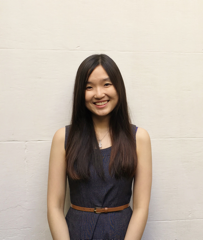
Hui Wen (Hailey) was a final year MSci Biology student at the University of Manchester, supervised by Dr Luke Jones. Hui Wen has a vast interest in many disciplines of biological research, as seen from her previous summer placements. She was a research assistant in Prof. Wong’s Pathology Lab at University Malaya Medical Centre in 2015 to assist on on-going researches such as Alzheimer’s Disease and Japanese Encephalitis. Later, she worked in Prof. Takano’s Lab to invent a sweat alcohol biosensor ‘AlcoPatch’ as part of the International Genetically Engineered Machine (iGEM) Competition 2016. Her boldness in trying new things has also led to her first publication in identifying gene polymorphisms associated with Schizophrenia using a bioinformatics approach. Hui Wen’s current core interest revolves around time perception and the effects of modality on perceptual duration judgements in
Working Memory. UPDATE: Hui Wen has now graduted her MSci with a distinction.
Working Memory. UPDATE: Hui Wen has now graduted her MSci with a distinction.
MS Ezgi Melisa Yüksel (VISITING ERASMUS STUDENT)
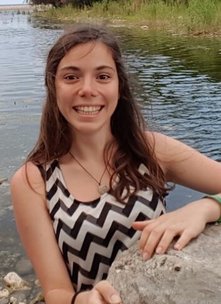
Ezgi is 3rd year Psychology student interested in cognitive psychology and researches in Middle East Technical University. In 2016 spring semester, Ezgi was working as assistant in Developmental laboratory and in 2016 summer worked as intern in Cognitive Developmental lab of University of Granada, Spain. For a year, she worked as an assistant in the cognitive psychology laboratory and conducting research about memory. Recent interest of her is time perception, how people's time perception can be characterised and why the perception of time changes across people. Ezgi was awarded an ERASMUS scholarship and spent the summer of 2017 working in the time lab at Manchester with Dr Luke Jones.
UPDATE: Ezgi is now at the University of Wisconsin-Madison, she has succesfully completed her master thesis and defence and is now studying for a PhD. Ezgi's master's thesis was on the topic of false memory and fluency. She is now investigating factors that might improve cognitive processes (which was inspired by her interest in the work done in Manchester on
how click-trains can alter/improve cognitive processes.)
UPDATE: Ezgi is now at the University of Wisconsin-Madison, she has succesfully completed her master thesis and defence and is now studying for a PhD. Ezgi's master's thesis was on the topic of false memory and fluency. She is now investigating factors that might improve cognitive processes (which was inspired by her interest in the work done in Manchester on
how click-trains can alter/improve cognitive processes.)
Ms Elena solodow (Previous masters student)
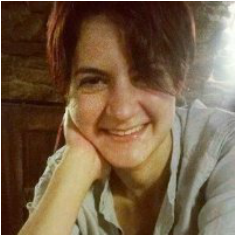
Elena is a New York native who received her bachelor's degree in Psychology from Lancaster University and is currently completing an MSc in Neuroimaging for Clinical and Cognitive Neuroscience at the University of Manchester. She has been a research assistant for various social cognition experiments, and intends to pursue a PhD in developmental neuroscience to investigate social and emotional cognition in infants and young children. She is currently assisting in a physiological study of time perception with Emily Williams, determining the impact of click trains on a hypothesised internal clock mechanism.
Dr Jessica Henderson (Previous Masters Student/RA)

JeJessica is currently completing an MRes in psychology at the University of Manchester, supervised by Dr Luke Jones. She is currently assisting Emily Williams with her study ‘A physiological investigation of repetitive stimulation on time perception’. Once she has completed her MRes Jessica will be working at Liverpool John Moores University as a research assistant for Dr Ruth Ogden on a project investigating the impact of stressors on time perception.
Update: Jessica completed her MRes in 2018.
Update: After working as a research assistant for Dr Ruth Ogden, Jessica is now studying for a PhD at the University of Liverpool.
Update: Jessica has now passed her PhD and is working as a Consumer Scientist at Unilever.
Update: Jessica completed her MRes in 2018.
Update: After working as a research assistant for Dr Ruth Ogden, Jessica is now studying for a PhD at the University of Liverpool.
Update: Jessica has now passed her PhD and is working as a Consumer Scientist at Unilever.
Prof Andrew Stewart
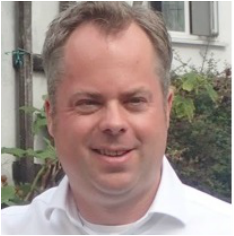
Andrew is an experimental psychologist interested in how people mentally represent different aspects of the world, including concepts of time. His particular research interests centre around language comprehension, with his most recent work focusing on the influence of context on how people represent and understand hypothetical situations and abstract information. You can find a list of Andrew's publications here.
Update: Andrew is now Head of Department in Computer Science
Update: Andrew is now Head of Department in Computer Science
Dr Sam Couth (postdoctoral researcher)
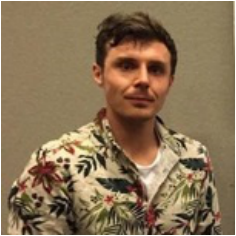
Sam completed his PhD at the University of Manchester in 2015 investigating the effects of ageing on multisensory integration. He is currently working on two post-doctoral roles which are exploring technological solutions to detecting and monitoring symptoms of neurodegenerative diseases, such as Parkinson’s and dementia. Sam's work on time perception includes investigating the temporal limits of visual and tactile interactions. More recently, he has been examining whether entraining internal clock speed using auditory stimuli can affect the perception of a well-known audiovisual illusion.
Dr Daniel Poole (Postdoctoral researcher)
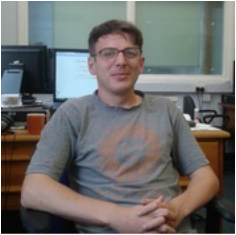
Daniel is a Postdoctoral Teaching Assistant in the School of Psychological Sciences. Dan is interested in how aspects of time perception may be affected in Autism Spectrum Condition, in particular the temporal alignment between the different senses. From September 2017 Dan has been working on our 3 year ESRC grant investigating timing processes in autism.
Collaborators
Dr Michelle Phillips (Lecturer - Royal northern college of music)
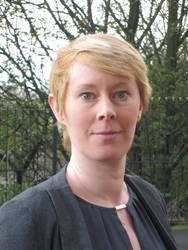
Michelle's research centres around empirical investigation of the experience of duration whilst listening to music. Specifically, Michelle is currently investigating the effect of expectation and predictability in music on psychological time, and the effect of beta blockers on timing productions and decisions.
Following completion of a PhD (under the supervision of Professor Ian Cross, Centre for Music and Science, University of Cambridge) concerning the subject of prospective and retrospective experience of time during music listening (as applied to wider debates including music analysis and the golden section, and perception of large-scale musical form), Michelle taught at Leeds College of Music and the Royal Northern College of Music, where she is currently Assistant Head of Undergraduate Programmes.
Following completion of a PhD (under the supervision of Professor Ian Cross, Centre for Music and Science, University of Cambridge) concerning the subject of prospective and retrospective experience of time during music listening (as applied to wider debates including music analysis and the golden section, and perception of large-scale musical form), Michelle taught at Leeds College of Music and the Royal Northern College of Music, where she is currently Assistant Head of Undergraduate Programmes.
Dr Ruth Ogden (Senior LEcturer - Liverpool John Moores University)
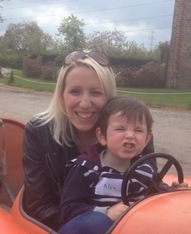
Ruth is an experimental psychologist. She completed her PhD with Dr Luke Jones at the University in 2008. She is currently a senior lecturer at Liverpool John Moores University.
Ruth is interested in the way in which memory and executive functions are involved in timing. She is also interested in how the experience of pain distorts time.
Ruth is interested in the way in which memory and executive functions are involved in timing. She is also interested in how the experience of pain distorts time.
